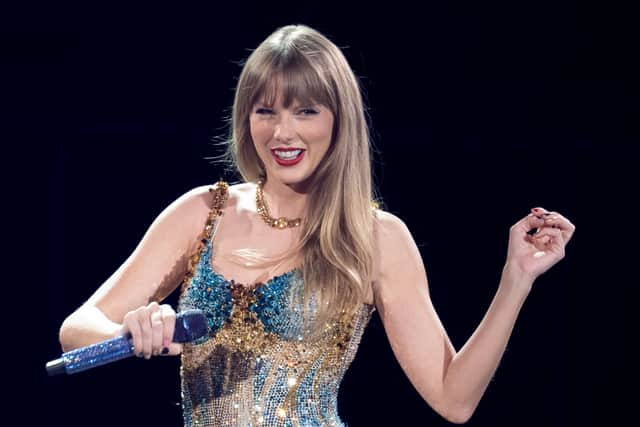SAG-AFTRA strike; the parallels between actors and musician and their issues with streaming residuals
People in this article
and live on Freeview channel 276
Hollywood is still on strike as both writers and actors have banded together on the picket lines for the foreseeable future, and given the actors at the English premiere of “Oppenheimer” downed tools the moment the strike was called, it gives you a clear indication how serious the matter is.
There are a cavalcade of reasons why both the Writers Guild of America (WGA) and SAG-AFTRA (the actors union) have decided to go on strike; the threat of artificial intelligence is one of the major concerns, while the topic of streaming residuals and how much actors get paid is the core issue of the actors strike, given the comments shared by a number of picketers recently.
Advertisement
Hide AdAdvertisement
Hide AdMandy Moore, for example, recently disclosed to The Hollywood Reporter her issues with how streaming residuals from US platform Hulu regarding her series “This Is Us” have been shared with performers; “The residual issue is a huge issue. We’re in incredibly fortunate positions as working actors having been on shows that found tremendous success in one way or another.”
“But many actors in our position for years before us were able to live off of residuals or at least pay their bills. I was talking with my business manager who said he’s received a residual for a penny and two pennies.”
But streaming platforms for film and television and the transparency, or lack of it seems, regarding streaming residuals seems to echo issues that musicians had a number of years ago with platforms such as Apple Music and specifically the noise regarding Spotify - the most ubiquitous of services out there.
What was the concern musicians had with their streaming platforms?
One of the primary complaints musicians had regarding streaming platforms is the relatively low payout per stream that artists receive from streaming services; the amount paid to musicians per stream is often a fraction of a cent, which may not be sufficient to support their livelihood, especially for independent or lesser-known artists.
Advertisement
Hide AdAdvertisement
Hide AdThis inequity between bigger acts and independent artists has long been highly skewed, with a small percentage of superstars receiving a significant share of the revenue, leaving a large number of other musicians with meagre earnings.
In 2014, Taylor Swift made headlines when she decided to remove her entire music catalogue from Spotify, reasoning that the streaming service did not fairly compensate artists for their work and argued that the low per-stream royalty rates on Spotify were detrimental to musicians, particularly emerging and lesser-known artists.


Swift also wrote an open letter to Apple Music in 2015, expressing her concerns about their initial decision not to pay artists during the three-month free trial period for users. In the letter, she urged Apple to change its policy and ensure that artists are properly compensated even during the free trial period. Apple subsequently revised its policy and agreed to pay artists during the trial period.
Over time, Spotify has increased the average per-stream royalty rate it pays to artists and allowed artists access to streaming data as a means of transparency, but many musicians still think that there needs to be more to address the inequities - and much like bigger actors like Matt Damon using their positions in the upper echelons of showbusiness to draw attention to struggling artists, Taylor Swift used her platform the very same way.
Comment Guidelines
National World encourages reader discussion on our stories. User feedback, insights and back-and-forth exchanges add a rich layer of context to reporting. Please review our Community Guidelines before commenting.
